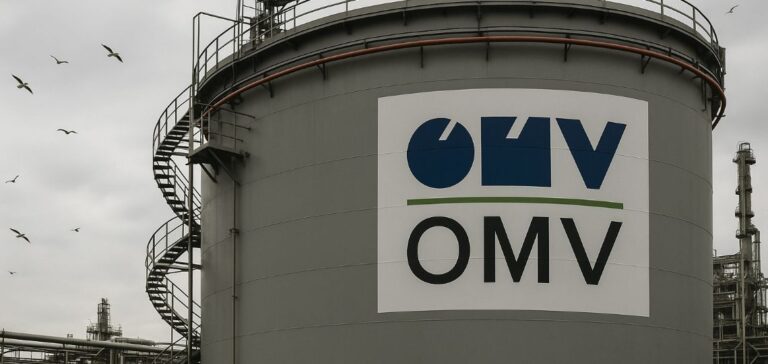Oil and gas group OMV reported a net profit of €143mn ($152mn) in the first quarter of 2025, down 70% compared to the same period last year. This sharp decline follows the cessation of Russian gas deliveries and a corporate restructuring in the chemical sector, according to a statement released on April 30.
Decline in operating profit and industrial transition
Operating profit excluding exceptional and inventory effects (Clean CCS Operating Result), closely watched by analysts, fell 22% to €1.16bn ($1.23bn). Total revenue remained stable at €6.2bn ($6.59bn), following the exclusion of the Borealis subsidiary’s activities, now classified as an asset held for sale. OMV plans a gradual divestment of this unit as part of a broader reorganisation of non-core operations.
In March, OMV announced a major agreement with Abu Dhabi National Oil Company (ADNOC) to establish Borouge Group International. The new polyolefins-focused company will consolidate selected stakes held by OMV and Borealis, with its headquarters located in Vienna. OMV contributed €1.6bn ($1.7bn) to the new entity, while anticipating the loss of control over Borealis.
End of Russian supply and Black Sea exploration
The group, 31.5% owned by the Austrian state, terminated six decades of commercial ties with Russian gas giant Gazprom at the end of 2024, despite a contract valid until 2040. This decision followed an arbitration ruling in January in which the Stockholm Chamber of Commerce awarded OMV €48mn ($51mn) in partial compensation for supply disruptions.
Meanwhile, OMV is expanding its exploration activity in Eastern Europe. In March, the company launched the first of ten planned drilling operations under the Neptun Deep gas project in the Black Sea off the Romanian coast. The first delivery is expected in 2027, with an annual production target of 8 billion cubic metres.
Workforce reduction and focus shift
The group’s strategic shift has been accompanied by a continued reduction in workforce. Between 2010 and 2025, the number of global employees fell from 37,700 to 23,500. This decrease is part of an efficiency-driven realignment towards higher-value segments.
“This is a key milestone for the global chemical industry,” said OMV Chief Executive Officer Alfred Stern regarding the launch of Borouge Group International. He noted that the new entity is set to become the world’s fourth-largest polyolefins producer.






















